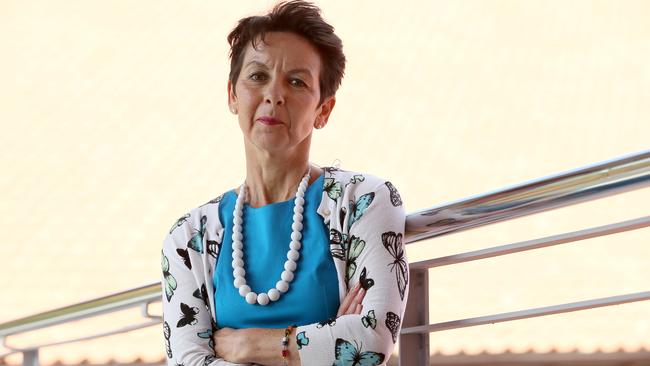Curtin University academic Julia Richardson: ‘knowing’ key to success
An intelligent career approach will help open your eyes to future job options.

When Curtin University academic Julia Richardson talks to students about job prospects, she discusses the creation of an intelligent career.
Richardson, a British-born associate professor of human resources management, who spent more than a decade working at York University in Toronto, Canada, talks to them about constantly managing change in their careers and understanding the direction they are taking.
“I’m teaching career management, it’s getting away from this notion that a piece of paper is everything,” Richardson says.
“A degree is only the beginning and I teach people not to be surprised when it’s really, really difficult out there. There’s this thing about the longer you’re out of work — we call it career-scarring — it’s harder to get a job and we know it’s easier to get one when you’ve already got one. So it’s about multiskilling.”
Richardson has co-authored a book with a British academic working in Boston, Michael Arthur, and Amsterdam-based Svetlana Khapova, who she has collaborated with over the years, called An Intelligent Career: Taking Responsibility for Your Work and Your Life.
The book is about managing careers, particularly before taking the leap to find another role.
In preparing for a job or career move, Richardson says, it is important to have a greater understanding of why you want to change, and by doing so you need to create an intelligent career.
Intelligent careers are owned by people who have a greater knowledge about themselves and the world around, she says, and are divided into three “knowings”. Once a student or worker understands the three knowings in their life, they can find the right career direction.
Richardson says the first is knowing why: where a person develops a sense of purpose and motivation regarding their work and career, and identifies what drives them forward.
The second knowing is how: learning how to get that career through understanding what skills and capabilities are needed.
“I realised a long time ago the corporate sector wasn’t right for me, so I asked myself how, and what did I need,” she says.
“The how was that I needed a PhD, for others it may be through formal education, or through experiential education.”
The third knowing is who: understanding who within networks can help a student or job seeker find the ideal role.
She says it is also important knowing when to take a leap, how long to stay in a role, whether international mobility is a possibility and what impacts that will have on those around you.
“For some people if you talk about international mobility, some start their mobility early on, they’ll get professional knowledge, they may not have children, but when they do and their children get to school age, they may need to settle, and when they get older they may want to move again,” she says.
“Then there’s the where. Obviously if you’re a miner in Western Australia that may be a challenge. You may get mining engineers moving to the Middle East. To enable that you need to have ‘whos’ in the region.”
Richardson says career planning is basic once a person establishes their knowing framework and understands their why, how and who.
“You then build on what you want, understand your environment and willingness to engage.”
Richardson says that although it may sound simple and almost cut and dried when it comes to thinking logically about career moves, people should not underestimate the fear of massive lifestyle or job changes, whether they are planned or forced.
In her own academic career she has sought change and managed to find it, but even when done by choice it was frightening.
People fear losing their income, not being able to pay the mortgage, being unable to put food on the table, or to pay school fees. But she says upskilling and plotting a career pathway by knowing what skills need to be obtained and why, means avoiding some of that fear.
Richardson faced her own fears when realising it was time to move on. She had been working at York University for a decade and was in the middle of writing the book when she decided she needed to make her own change.
She and her partner had done some work at Curtin University as a sabbatical in 2007 and she loved the Asia-Pacific and, despite working in a tenured job for life, she started looking.
“When I got my 10-year badge rather than saying ‘I’m happy’, I thought God, ‘I’m staring 50 in the face and I need to take some of my own advice’,” she says.
She and her partner won jobs in Western Australia and caught a plane, fearing the unknown, but prepared to take a leap.
Richardson says it is important to encourage mobility and job change in academia because it broadens a person’s skill base.
Learning new skills makes people much more employable, she says, and building knowledge to create an intelligent career will help people move onwards and upwards.
“Being employable is about building on skills,” she says.
“Once you’re employable you’re not going to be stuck in a dead-end job, you’re not going to be talking about how you’re going to pay the mortgage.”
But she says plotting an intelligent career is not about finding your ephemeral calling in life. It is about opening your eyes, thinking clearly and self-evaluation.
“It was difficult for me leaving Canada and people were saying we were stupid, they couldn’t believe we were giving up a job for life’” she says. “I told them it could be worse and I could be saying I was unhappy in five years time.
“When we came here this wasn’t a leap of faith, it was calculated because we’d been here in 2007, we had people we’d done research with.”


